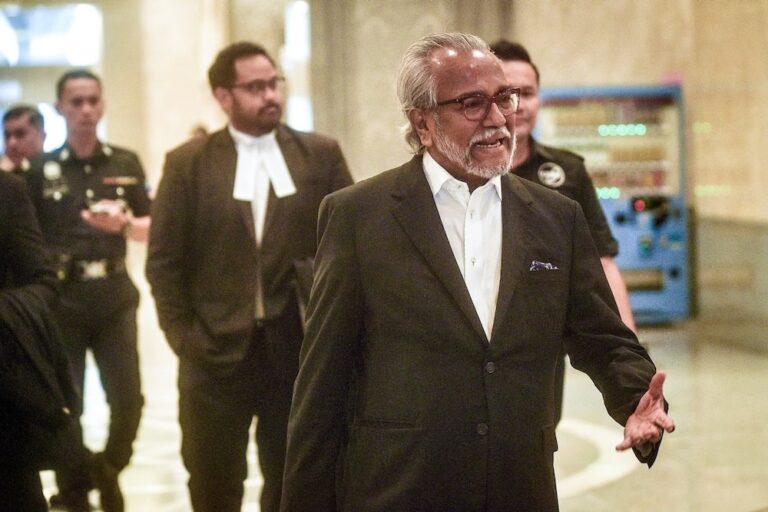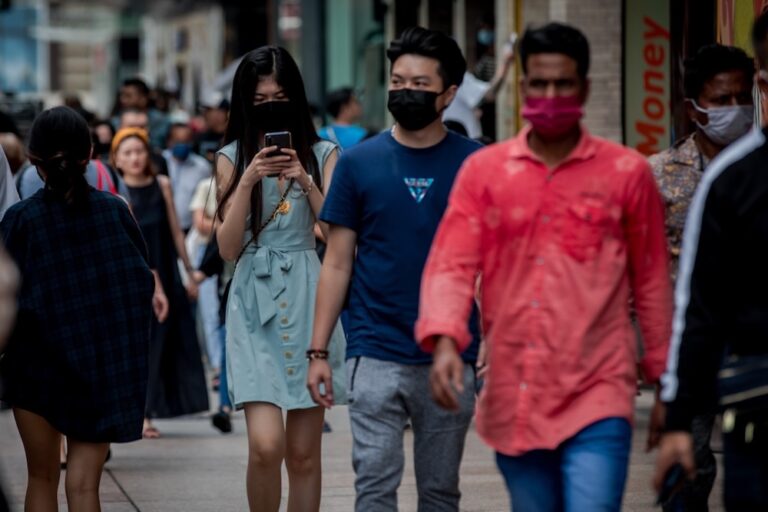(SEAPA/IFEX) – A major newspaper associated with the ruling party in Malaysia has terminated two critical columns, further reducing the plurality of voices in the mainstream media, which largely mirrors the government position. The “New Straits Times” (NST), the English daily with the second-largest distribution in the country, has pulled Zainah Anwar and Amir Muhammad’s […]
(SEAPA/IFEX) – A major newspaper associated with the ruling party in Malaysia has terminated two critical columns, further reducing the plurality of voices in the mainstream media, which largely mirrors the government position.
The “New Straits Times” (NST), the English daily with the second-largest distribution in the country, has pulled Zainah Anwar and Amir Muhammad’s columns, which last appeared on 27 July and 2 August 2007, respectively.
NST Deputy Group Editor Kamarul Idris Zulkifli confirmed the cancellation of Anwar’s column but declined to comment when contacted by a local media rights group, the Centre for Independent Journalism (CIJ). The columnist, however, said NST had cited lack of space for non-staff columns.
A former NST journalist and human rights commissioner who was part of the panel that recommended the adoption of a Freedom of Information Act, Anwar is now the executive director of Sisters in Islam (SIS), a vocal Muslim women’s group working on equality and justice. Her column in NST had promoted the same themes and was one of the few progressive voices in danger of being drowned in the largely patriarchal and conservative Muslim-majority society.
Ironically, Anwar’s last column, entitled “Let’s give freedom a good press”, recounted a talk on press freedom and censorship she gave in 1995, to officers from the Ministry of Home Affairs’ Control of Publications Unit. She had ended the talk recommending that the archaic censorship department be shut down in the light of the futility of censorship in the age of information. “[O]f course, that was the last time I was invited to give a talk to the unit,” she wrote, little realising that a similar fate would befall her column.
Her final column had challenged the government to promote a free press and review all the restrictive press laws “so that mainstream journalism remains a credible source of information in the face of challenges from new media.”
“Those with authority, expertise and qualifications can no longer monopolise the right to tell us what is right and what is wrong. They have to compete for their voices to be heard and their influence to hold sway in a truly free marketplace of ideas,” she wrote, apparently not swaying the newspaper’s top executive, however.
Muhammad, too, had written for NST before, from 1987 to 1999, establishing a reputation through his column as one of the country’s brightest writers, offering witty and irreverent dissections of contemporary Malaysia. He crossed the official line after he implied in an analogy that a change of government was due ahead of a crucial general election when then-prime minister Dr Mahathir Mohamad faced the worst challenge to his leadership following a bitter fallout with his popular deputy, Anwar Ibrahim.
Muhammad ventured into filmmaking soon after and gained notoriety when two of his films, “The Last Communist” and its sequel “Village People Radio Show”, were banned for portraying a different take on the much-demonised communists who had also fought to liberate the country from the British colonialists in the 1940s (see IFEX alerts of 1 March and 26 February 2007).
His reappearance in NST in 2006 had been seen as a sign of the media reopening under the new administration of Prime Minister Abdullah Ahmad Badawi. However, his column was still being censored and he had made a game of spotting the difference in the originals posted on his blog ( http://amirmu.blogspot.com ).
NST’s action in removing two critical opinion leaders in the midst of recent government bans on media discussion of religion, ethnicity and the Constitution reflects the Malaysian mainstream media’s habit of discarding their role of providing a plurality of opinions and a forum for public criticism.
“(This) is another worrying sign that freedom of expression and information are being curbed at a time when Malaysians need more discussion and information in the run-up to elections, (expected to be held by early 2008),” said CIJ, a SEAPA partner, in a 13 August media release ( http://www.cijmalaysia.org/display_story.asp?ID=530 ).
It is also a disservice to Malaysians who will be celebrating the 50th anniversary of their independence on 30 August, with two fewer public voices of reason.


